Our Team
Our Team
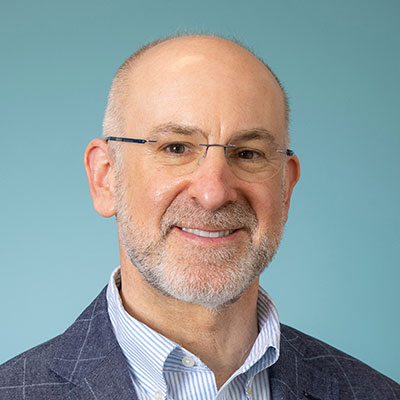
Steven Silverstein, PhD
Director
Dr. Silverstein is the George L. Engel Professor of Biopsychosocial Medicine in the Department of Psychiatry at the University of Rochester Medical Center. He also holds joint appointments in the Departments of Neuroscience, Ophthalmology, and the Center for Visual Science. Prior to his work in Rochester, Dr. Silverstein was a Professor of Psychiatry and Ophthalmology at the Robert Wood Johnson Medical School at Rutgers University. While at Rutgers, he also served as the Director of the Division of Schizophrenia Research at Rutgers University Behavioral Health Care (UBHC) and founding Co-Director of the Rutgers-Princeton Center for Computational Cognitive Neuropsychiatry.
Dr. Silverstein is the former Chair of the American Psychological Association’s Task Force on Serious Mental Illness, and a past Executive Board member and President (2017) of the Society for Research in Psychopathology. He received his Ph.D. in Psychology from the State University of New York at Buffalo in 1989 and completed his internship and fellowship at Cornell Medical College from 1988-1990. He has over 30 years of experience in treating people with schizophrenia and has directed inpatient units and outpatient programs for this population. This includes work with both chronic and first episode patients, and people at high risk for the disorder. Dr. Silverstein’s research interests are in the development of schizophrenia, perceptual and cognitive changes found in schizophrenia and their treatment, and prediction of treatment response and relapse. He has over 350 publications related to schizophrenia and other topics in psychiatry, and is currently Principal Investigator (PI) on 7 NIMH, state (NY), foundation, or industry-sponsored grants involving assessment and treatment.

Lyvia Bertolace, MD
Assistant Professor
Dr. Bertolace attended medical school in her hometown of Rio de Janeiro, Brazil. Following her graduation, she completed her Psychiatry Residency at the Federal University of Rio de Janeiro and practiced as a psychiatrist until moving to the University of Florida. While in Florida, she conducted research in the Center for OCD, Anxiety, and Related Disorders. She primarily worked with individuals with Hoarding Disorder and OCD, including pediatric patients through the university’s nationally recognized Fear Facers Camp program. Since joining the University of Rochester Medical Center in 2021, Dr. Bertolace has served as a Research Coordinator in the Center for Retina and Brain, where she currently focuses on retinal and cognitive changes in people with schizophrenia.
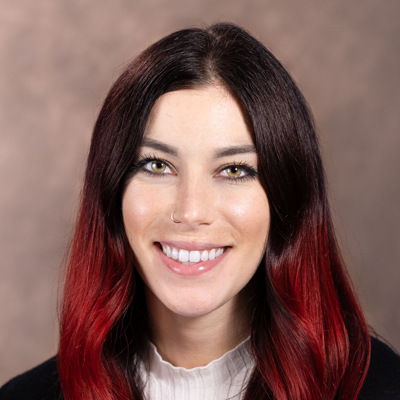
Brittany A. Blose, MS
Clinical Psychology PhD Student
Brittany Blose earned a Masters in Experimental Psychology from the Rochester Institute of Technology, where she studied the links between childhood maltreatment and mental illness, as well as their relationships to social cognition and substance use. During her graduate studies, she was the recipient of the Leo and Mary Smith Scholarship and the Experimental Psychology Outstanding Student Award. She has presented at the Annual Meeting of the Association for Behavioral and Cognitive Therapies (ABCT) and Society for Research in Psychopathology (SRP), and is a current member of Psi Chi, the National Honor Society in Psychology. She currently serves as Research Coordinator in the Center for Retina and Brain at the University of Rochester Medical Center, where she is Project Coordinator for Early Psychosis Intervention Network (EPINET) project for individuals with first episode psychosis. In addition, Brittany also helps coordinate a study examining electroretinography (ERG) components of individuals with schizophrenia and bipolar disorder. Before coming to Rochester, she completed her Bachelors in Psychology at Kent State University, where she also conducted research in the Animal Cognition and Neuroscience Lab.

Haley Dennis
Human Subjects Research Specialist
Haley is a Human Subjects Research Specialist for Dr. Judy Thompson, primarily focusing her efforts on the EEG Auditory Hallucination study. She began her work in the Center for Retina and Brain as a volunteer on Dr. Steven Silverstein’s OCT study. During her undergraduate years, Haley has spent time as a research assistant and teaching intern at SUNY Geneseo. At SUNY Geneseo, Haley was a member of Psi Chi, NSLS, and a provisional member of Nu Rho Psi. Haley has always aspired to work in psychosis research, and she has been very pleased to have found her place in Rochester, NY. She hopes to someday become a principal investigator for studies related to psychosis, focusing on recovery outcomes for schizophrenia-spectrum disorders. Haley believes that recovery is not only possible for individuals who experience psychotic disorders, but that thriving should be the norm. She likes to read books and research papers, swim laps, and play Pokémon Go during her time outside of the lab.
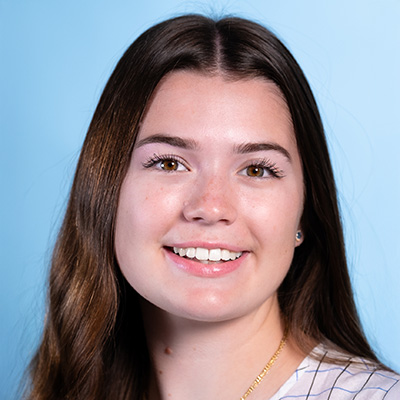
Madison Dougherty
Research Intern
Madison Dougherty is currently an intern in the Center for Retina and Brain who works along with Dr. Judy Thompson, on a study investigating auditory processing in schizophrenia. She is a current undergraduate at the University of Rochester, double majoring in Neuroscience and Psychology. Madison has a strong interest in various psychiatric and neurological disorders of the brain, and is especially passionate in helping patients receive better treatment outcomes. She is inspired by her grandfather who had a severe stroke in 2017 and was able to recover with the help of his healthcare team and family. Madison’s long term goals include finishing her Bachelor’s degree and continuing her education in medical school. In her free time, Madison enjoys playing softball, spending time with her dog, volunteering at the local animal shelter, and talking with her family and friends.
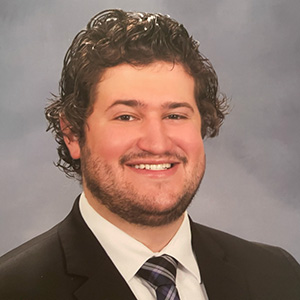
Michael Elacqua
Research Coordinator
Michael Elacqua is a research coordinator who works primarily with Dr. Judy Thompson, assisting in her studies investigating auditory processing in schizophrenia. He received his bachelor’s degree in psychology at the College of the Holy Cross and is a member of Psi Chi, the National Honor Society in Psychology. At Holy Cross, Michael was a member of Dr. Noah Berman’s HOPE Lab, which focuses on studying treatment and mechanisms of OCD and related disorders. He also spent a summer interning as a counselor at the Enriched Living Center, a supportive residential setting for people with serious mental illness in his home town of Utica, New York. Michael’s long term goals involve continuing his education so that he can pursue a career as a therapist for those with serious psychiatric disorders. Outside the lab he enjoys playing guitar, taking long nature walks, and spending time with family and friends.
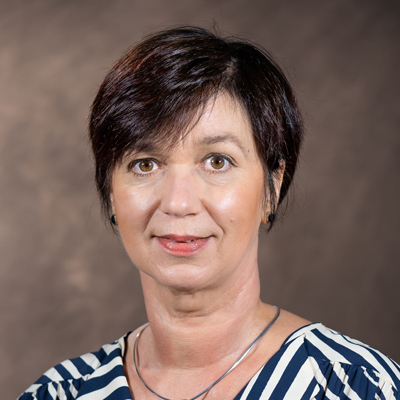
Iwona Grzela-Juskiewicz, MD, MPH
Health Project Coordinator
Dr. Grzela-Juskiewicz attended medical school at Pomeranian Medical University in Szczecin, Poland, and remained in Szczecin for her residency in internal medicine. Upon moving to Rochester, NY, and joining the University of Rochester, she worked initially as a Clinical Research Coordinator. After conducting clinical trials across a wide range of specialties, she became a Health Project Coordinator in 2013, where her work has primarily focused on severe mental illness and health care for marginalized groups. In 2015, she completed a Masters in Public Health degree program at the University of Rochester School of Medicine and Dentistry. Her current interests include mental health for under served populations, patient-centered approaches in research and clinical care, and psychosis research.
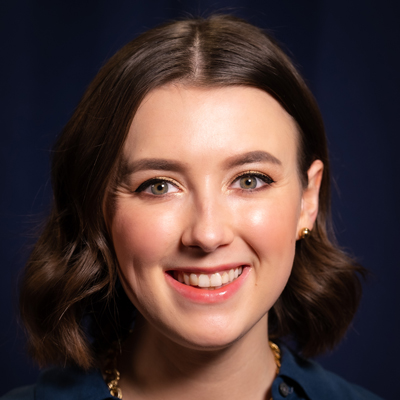
Kaitlyn Kaiser
Clinical Psychology PhD Student
Kaitlyn Kaiser is a research coordinator at the Center for Retina and Brain, where she primarily works on a visual remediation treatment study for individuals with schizophrenia. Prior to moving to Rochester, she served as a clinical data specialist in the Center for Depression Research and Clinical Care at the University of Texas Southwestern. In this role, she worked on several cohort studies identifying biomarkers and novel treatments for major depression and other mood disorders. More recently, she worked at Texas A&M University as a laboratory manager in the Department of Psychological and Brain Sciences, overseeing social research centered around emotions, judgment, and decision making. Outside of work, Kaitlyn spends her free time hiking, practicing yoga, and trying out new restaurants around Rochester.

Brian Keane, PhD
Assistant Professor
Dr. Keane investigates how the visual system transforms spatiotemporally fragmented retinal images into discrete representations of objects and how this transformation becomes compromised among those with psychosis. This question is approached with behavioral psychophysics and resting-state and task-based functional MRI. Dr. Keane has co-developed relatively simple visual tasks that can briefly and non-invasively elicit large visual impairments in schizophrenia patients; such impairments are linked to a variety of clinical variables such as conceptual disorganization, premorbid functioning, and illness duration. Over the years, Dr. Keane has also written on foundational questions in cognitive science that are related to object perception, such as conditions under which visual grouping becomes malleable by higher-order thought or the best way to characterize the content of sensory representations.
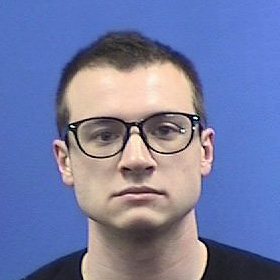
Thomson Kelly
Research Coordinator
Tom Kelly has worked as a research coordinator in the Center for Retina and Brain since 2022, in particular, studying the interplay between heart function, cognition, and retinal health. He received his bachelor’s in psychology at the Rochester Institute of Technology. Prior to working at the Center for Retina and Brain, he worked on a study examining the effects of alcohol and cannabis abuse on impulsivity in young adults and a longitudinal study exploring the effects of phthalate exposure on child development.

Tanique McDonald
Graduate Student Researcher
Tanique graduated from Emory University in 2019 with a bachelor's degree in Neuroscience and Behavioral Biology. She joined the Neuroscience Graduate Program in 2022, and her current research explores the role of inflammation in the development of visual system changes associated with psychiatric conditions.
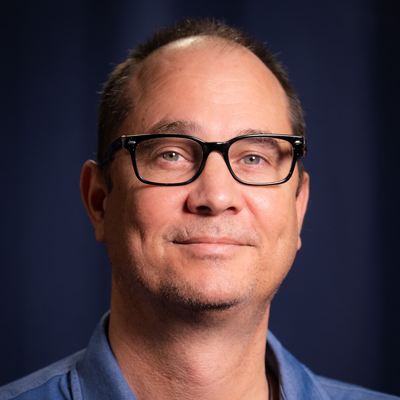
Cliff Miller
Research Coordinator
Cliff Miller holds a bachelor’s degree in Psychology from Drew University, where he conducted behavioral neuroscience research on addiction and withdrawal symptoms in animal models. Following graduation, he served as a care manager at Burrell Behavioral Healthcare in Columbia, MO, then at Person Centered Services and Catholic Family Center in Rochester, NY. He joined the University of Rochester Medical Center in 2020, initially as a senior psychiatric technician on an inpatient psychiatry unit before transitioning to his role as a research coordinator in the Center for Retina and Brain. His current work primarily focuses on visual remediation treatment for individuals with schizophrenia. Outside of the lab, he supports healthy relationships and well-being in the community as both a parenting coach and a Reiki master.
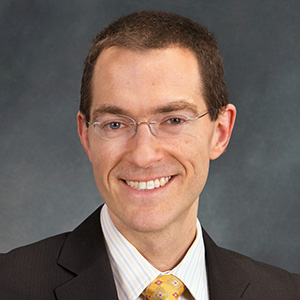
Mark Oldham
Assistant Professor
Mark Oldham is an assistant professor of psychiatry at URMC. He completed fellowship training in consultation-liaison psychiatry at Yale School of Medicine after which he joined as faculty at Yale-New Haven Hospital. He transferred to the University of Rochester Medical Center in 2017 to launch a new psychiatric consult service patterned after a model developed at Yale, to provide proactive consultation to patients in hospital medicine. In Rochester, he has co-created a comprehensive suite of catatonia assessment resources (https://bfcrs.urmc.edu) and been awarded a K23 career development award from the National Institute on Aging to study sleep, delirium, and subsequent Alzheimer disease and related dementias. He currently serves as deputy editor for the Journal of the Academy of Consultation-Liaison Psychiatry and is president-elect of the American Delirium Society. Funded by an American Heart Association innovation award, Mark is currently collaborating with Joy Choi and Steve Silverstein to study the novel application of retinal measures to sleep, delirium, and cognition through a project entitled “Eyeing the link between heart and brain health.”

Aneka Suri
Administrative Assistant
Aneka is the administrative assistant to the Associate Chair of Research in the Department of Psychiatry and Director of the Center for Retina and Brain (CRAB). She joined the CRAB team in 2022 and enjoys the combination of administrative and research-oriented work that she engages with daily. Aneka is part of the Psychosis Research Group (PRG) team and works extensively with the PRG database, collaborating with several labs across UR/URMC. After studying biological sciences with emphasis on environmental and oceanic conservation, Aneka has developed an interest in exploring connections between the changing environment around us and its potential impacts on mental health. In her free time, Aneka enjoys reading, being with her family, playing video games, and trying new foods.
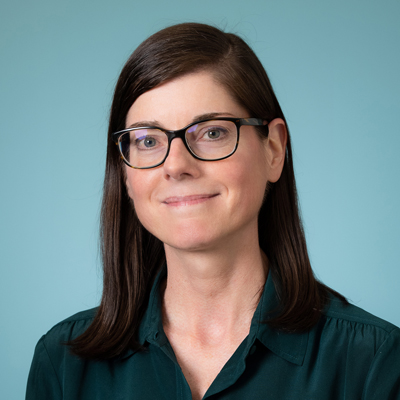
Judy L. Thompson, PhD
Assistant Professor
Dr. Thompson received her Ph.D. in clinical psychology from the University of Pittsburgh in 2006, and completed her clinical internship at the University of Illinois-Chicago. She then spent several years in the Department of Psychiatry at Columbia University, first completing a schizophrenia research fellowship focused on at-risk populations, and then working in the Division of Translational Imaging as a research scientist, where she applied PET imaging methods to address questions related to dopamine system alterations in schizophrenia and related conditions.
In 2013, she joined the faculty of the Department of Psychiatric Rehabilitation at Rutgers University, where she collaborated extensively with the Division of Schizophrenia Research, led by Dr. Silverstein, on work focused on visual perceptual impairments and perceptual remediation in schizophrenia. Dr. Thompson is now an Assistant Professor in the Department of Psychiatry, and holds a joint appointment in the Department of Neuroscience, at URMC. She has a longstanding interest in mechanisms of psychosis, and since joining URMC in 2020, she has developed a line of research focused on auditory perceptual processes and hallucinations in psychosis, with the aim of advancing knowledge of pathophysiology and the development of novel interventions. She also continues to collaborate with Dr. Silverstein on projects focused on retinal functioning and remediation of visual processing impairments in schizophrenia, and currently oversees the training of students and staff of the Center for Retina and Brain in the administration of diagnostic, cognitive, and clinical assessments for studies of psychotic and mood disorders.

Tanya Tran, PhD
Senior Instructor
Dr. Tran received her Ph.D. (2022) in clinical psychology from Queen’s University (Kingston, Canada). Her clinical and research training at Queen’s specialized in the assessment and treatment of severe mental illness. She has experience implementing and evaluating novel psychotherapy programs, often focusing on augmenting cognitive health and functional recovery (i.e., Action-Based Cognitive Remediation). Her graduate research focused on understanding the mechanisms underlying motivation and pleasure dysfunctions of psychotic and mood disorders. She developed performance-based and self-report measures to address the assessment gap of “cognitive effort motivation”, an important functional correlate in severe mental illness. Her work in this area was awarded the Ontario Graduate Scholarship, Joseph Bombardier Canadian Graduate Scholarship (Social Sciences and Humanities Research Council), and the Canadian Psychological Association Certificate of Academic Excellence.
Dr. Tran is a Senior Instructor in the Department of Psychiatry at the University of Rochester Medical Center. She is primarily situated at the INTERCEPT clinic, a clinical high risk for psychosis service affiliated with the Strong Memorial Hospital. At this clinic, she is involved in assessment, treatment, and research. During her fellowship at URMC, she aims to develop and evaluate psychological interventions that better meet the mental health needs of psychosis vulnerable youth. Specifically, she is keen to translate affective neuroscience research findings on negative symptom mechanisms into targeted psychological interventions.
Research Collaborators

Jeff Bazarian MD, MPH
Professor of Emergency Medicine and Neurology
Dr. Jeff Bazarian is tenured Professor of Emergency Medicine and Neurology at the University of Rochester. He is a graduate of Brown University and the University of Rochester School of Medicine and Dentistry. His research uses advanced brain imaging, helmet sensors and blood sampling to investigate the effects of concussion and repetitive head hits on the brain. Dr. Bazarian was the lead author on the 2018 Lancet Neurology publication detailing the results of the multi-national study that was used to support FDA approval for the first blood-based biomarkers of traumatic brain injury in the US. He currently sees concussion patients in URMCs Child Neurology Clinic.
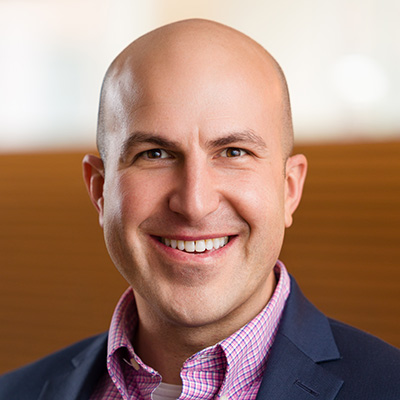
Kian Merchant-Borna, MPH, MBA
Research Faculty
Kian Merchant-Borna, MPH, MBA is a Research Faculty member in the Department of Emergency Medicine at the University of Rochester Medical Center and Director of the Industry-Sponsored Research Program in the Emergency Department. He has become a leader in this space specializing in initiating, developing, and executing clinical trials and fostering academic collaborations and partnerships with industry partners. He has and continues to serve as the Principal Investigator or co-Investigator for many high profile national and international clinical trials. His primary focus in research includes traumatic brain injury (TBI), as well as medical devices, including blood biomarkers and point of care testing. In addition to authoring articles, he has patented intellectual property in the field of traumatic brain injury, and has contributed to many FDA-approvals for medical devices. He has received degrees from Boston University School of Public Health, the University of Rochester Simon School of Business, and Alfred University. Kian spends his time between Rochester, New York and Mount Vernon, Maine, with his two children and wife Rachel, who also graduated from Alfred University.
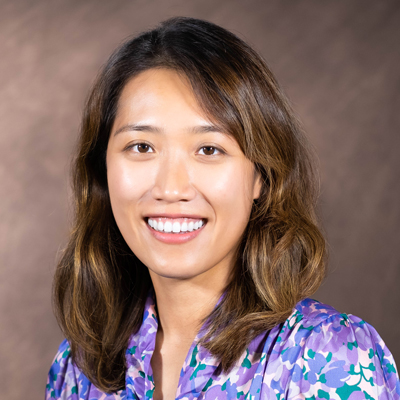
Joy Choi, MD
Assistant Professor
Dr. Choi currently serves as a Assistant Professor in the Department of Psychiatry at the University of Rochester Medical Center, where she has pioneered work on improving psychiatry outcomes for heart transplant patients, both as a clinician and a researcher. In her clinical work, Dr. Choi primarily provides psychiatric consultations for end-stage heart failure patients in need of advanced cardiac therapies on the Advanced Heart Failure Service. She is the author of multiple book chapters, with particular interests in substance use disorders in transplant patients, as well as cognitive deficits in end-stage heart failure patients.
Dr. Choi graduated from Robert Wood Johnson Medical School at Rutgers University before completing the adult psychiatry residency program at the Mount Sinai-West/St. Luke's Hospitals as a chief resident. While at Mount Sinai, she was the recipient of the Philip Krick, MD Resident Award for Humanism in Psychiatry. Following her residency, she completed her fellowship training in Consultation-Liaison Psychiatry at the New York University School of Medicine before joining the University of Rochester Medical Center faculty.
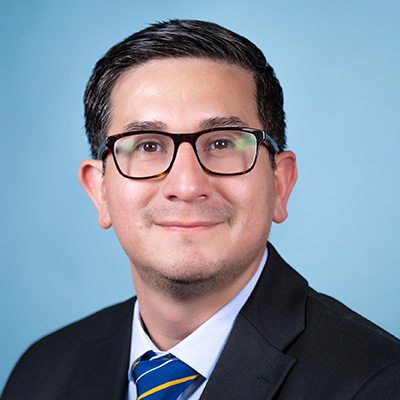
Paulo Lizano, MD, PhD
Chief of Academic Affairs, Division of Community Psychiatry
Associate Director of Research Education, Director of Early Psychosis Research Program
Dr. Paulo Lizano is a board-certified psychiatrist, neuroscientist, and clinician-investigator whose work bridges translational research and clinical care in early- stage psychotic disorders. Dr. Lizano transitioned to URMC to take the role of Chief of Academic Affairs for the Community Psychiatry Division, as well as Associate Director of Research Education and Director of Early Psychosis Research Program at URMC. Prior tohis current roles, Dr. Lizano held clinical and academic positions as a staff psychiatrist and instructor at Harvard Medical School, working in both inpatient and outpatient psychiatry settings. He was later promoted to Assistant Professor and then Associate Professor of Psychiatry at Harvard Medical School. He recently served as Chief of the Division of Translational Neuroscience at Beth Israel Deaconess Medical Center (BIDMC), where he also directed the ASPIRE Clinic—an early psychosis program integrating research, diagnostics, and clinical intervention. Dr. Lizano is committed to mentoring the next generation of physician-scientists, directing a translational neuroscience lab that trains medical students, residents, and postdoctoral fellows. His long-term vision is to develop biologically informed tools for early detection, monitoring, and treatment of serious mental illness.
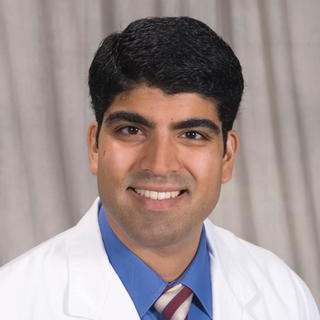
Rajeev S. Ramchandran, MD, MBA
Director of Population Health, FlaumEye Institute (FEI), URMC
Dr. Ramchandran, Director of Population Health at the Flaum Eye Institute (FEI), University of Rochester Medical Center (URMC), leads an effort to incorporate public eye health education and eye care based on a vertically integrated community engagement model pioneered by faculty at the L. V. Prasad Eye Institute, India, with whom he also partners directly. Dr. Ramchandran’s primary faculty appointment is in the Department of Ophthalmology where he practices as a vitreoretinal surgeon and has secondary faculty appointments in Public Health Sciences and the Center for Community Health and Prevention at the University of Rochester. He also serves as the head of the scientific committee of Prevent Blindness, the oldest non-governmental agency championing vision and eye health.
In collaboration with colleagues at the University of Rochester, Dr. Ramchandran conducts public health research focused on improving the health of the community and addressing health inequities through implementation science, health services and outcomes research, and data science. With researchers in Public Health Sciences, Dr. Ramchandran is developing public health related outcomes research studying the implementation and impact of various interventions to develop effective vision and eye health surveillance in the Greater Rochester Region and connect those identified as needing further care to the appropriate eye care services in the Greater Rochester Community in a timely manner.
With care providers from other clinical disciplines such as psychiatry, primary care, cardiology, endocrinology, and oncology, Dr. Ramchandran uses eye care and ocular imaging as a gateway and pathway to improve the health of the community. He does this by helping those at risk for eye disease to understand how eye health relates to overall systemic and psychosocial wellness and by studying the retina as a biomarker for systemic and neuropsychiatric disease. Dr. Ramchandran collaborates with the Goergen Institute of Data Science at the University of Rochester to use artificial intelligence analysis including computer vision-based machine learning to automatically identify clinical markers in retinal images of eyes with diabetic retinopathy. He is also developing research in oculomics, with colleagues in psychiatry and neurology, to understand how retinal imaging can be used as a biomarker for characterizing and determining the severity of neuropsychiatric disease, such as schizophrenia, and to characterize cerebral vascular perfusion in those with heart failure using optical coherence tomography and angiography (OCTand OCT-A). A collaboration with psychiatry colleagues is also examining the association of vision loss and mental health to understand how poor vision impacts wellness and how to mitigate these impacts by connecting identified at risk individuals with mental health services and counseling in a timely fashion.
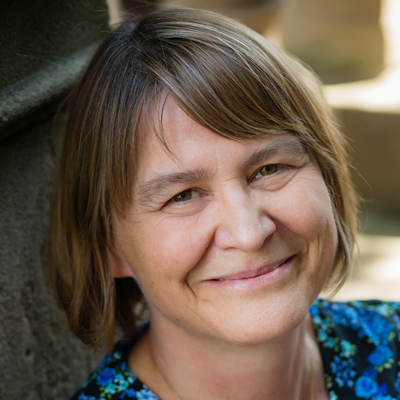
Silvia Sörensen, PhD
Associate Professor, URMC
Dr. Sörensen is a researcher and teacher in human development with particular interests in facilitating well-being among vulnerable older adults and their families. Collaborating with colleagues in ophthalmology, psychiatry, primary care, immunology, and with community-based health activists, she has developed and/or evaluated interventions to (1)promote positive health behaviors, (2) prevent mental and physical health problems, (3) increase access to mental health services for underserved groups, (4) assist older adults with preparation for future care, and (5) support well-being among older adults.
Dr. Sörensen is a co-founder of the Aging Well Initiative community collaboration with faith-based organizations, and she has a particular interest in empowerment of underserved groups in order to reduce health disparities. She is also the director of the Laboratory for Aging, Population Health, Disparities, and Intervention Research (LAPHDIR) in which new research and community health projects are hatched with the help of a Community Health-project Advisory Board (CHAB). Her specific areas of research include successful aging through preparation for future care, family caregiver stress and coping, interventions with caregivers, interventions with vision-impaired older adults, future thinking among older adults, as well as health literacy and patient education for diabetes prevention. Her areas of mentoring expertise include community engagement, research methods and statistics, and grant-writing; content expertise is in application of life-span developmental perspectives, adult development and aging, mental health in the context of chronic illness, health and aging, health disparities, and health promotion.